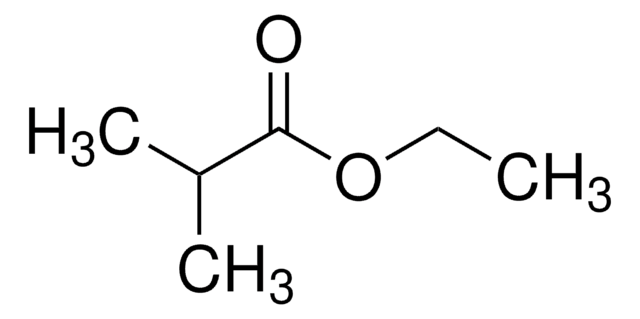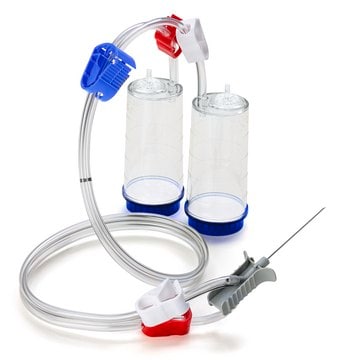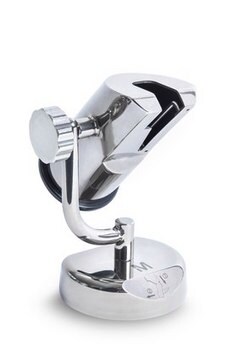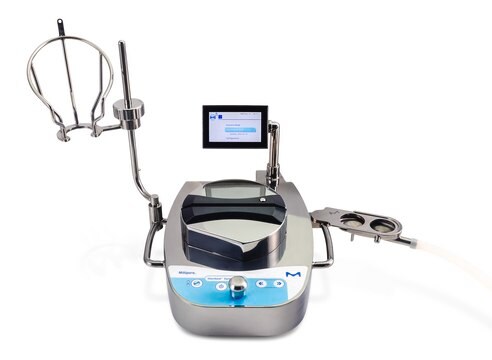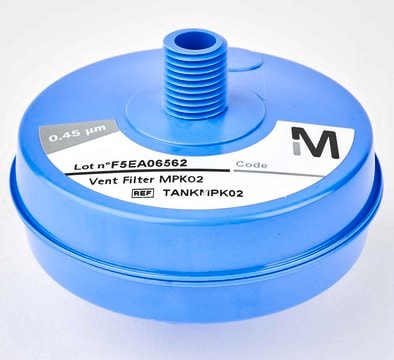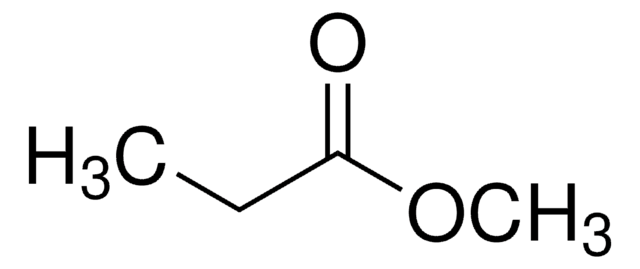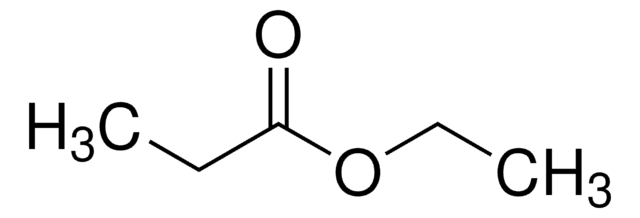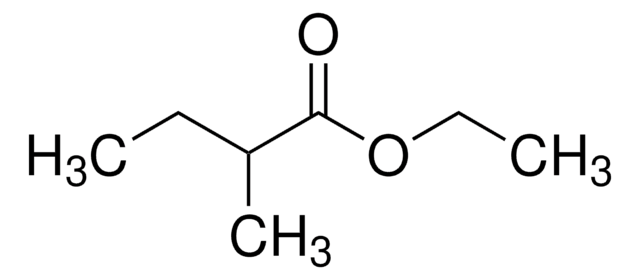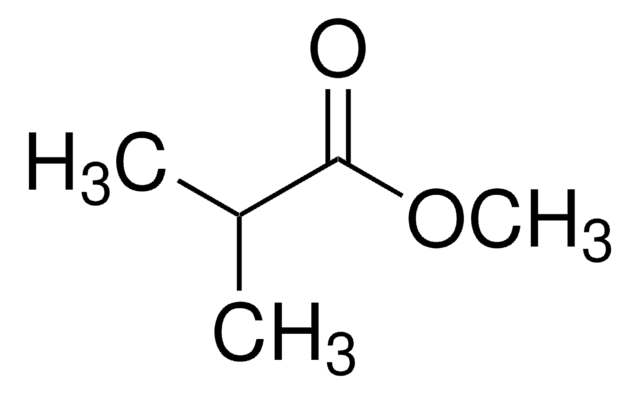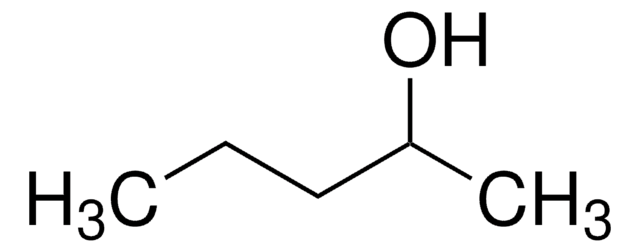W242802
Ethyl isobutyrate
≥98%, FCC, FG
Synonyme(s) :
Ethyl 2-methylpropanoate
About This Item
Produits recommandés
Source biologique
synthetic
Niveau de qualité
Qualité
FG
Fragrance grade
Halal
Kosher
Agence
follows IFRA guidelines
meets purity specifications of JECFA
Conformité réglementaire
EU Regulation 1223/2009
EU Regulation 1334/2008 & 178/2002
FCC
FDA 21 CFR 117
FDA 21 CFR 172.515
Densité de vapeur
4.01 (vs air)
Pression de vapeur
40 mmHg ( 33.8 °C)
Essai
≥98%
Indice de réfraction
n20/D 1.387 (lit.)
pb
112-113 °C (lit.)
Densité
0.865 g/mL at 25 °C (lit.)
Application(s)
flavors and fragrances
Documentation
see Safety & Documentation for available documents
Allergène alimentaire
no known allergens
Allergène de parfum
no known allergens
Propriétés organoleptiques
ethereal; fruity; sweet
Chaîne SMILES
CCOC(=O)C(C)C
InChI
1S/C6H12O2/c1-4-8-6(7)5(2)3/h5H,4H2,1-3H3
Clé InChI
WDAXFOBOLVPGLV-UHFFFAOYSA-N
Vous recherchez des produits similaires ? Visite Guide de comparaison des produits
Description générale
Application
- Recyclable polymeric pi-acid catalyst effective on Mannich-type reaction in water.: This study explores the use of a recyclable polymeric pi-acid catalyst, effective in facilitating Mannich-type reactions in aqueous environments, demonstrating a potential for enhancing green chemistry processes through water-based reactions (Masaki Y et al., 2006).
Mention d'avertissement
Danger
Mentions de danger
Conseils de prudence
Classification des risques
Flam. Liq. 2
Code de la classe de stockage
3 - Flammable liquids
Classe de danger pour l'eau (WGK)
WGK 2
Point d'éclair (°F)
68.0 °F - closed cup
Point d'éclair (°C)
20 °C - closed cup
Équipement de protection individuelle
Eyeshields, Faceshields, Gloves, type ABEK (EN14387) respirator filter
Faites votre choix parmi les versions les plus récentes :
Déjà en possession de ce produit ?
Retrouvez la documentation relative aux produits que vous avez récemment achetés dans la Bibliothèque de documents.
Les clients ont également consulté
Protocoles
Separation of Acetone; Acetic acid; Propionic acid; Ethyl butyrate; Ethanol; Isoamyl acetate; Isobutyric acid; 3-Methyl-2-butanol; Methyl acetate; 1-Propanol; Acetal, ≥98%, FG; 2-Methyl-1-pentanol; Butyl acetate; Ethyl propionate; 3-Pentanol; 2-Pentanol, 98%; Ethyl isobutyrate; Isobutyl acetate; Acetaldehyde; Furfural; Butyric acid; Methanol; Ethyl acetate
Notre équipe de scientifiques dispose d'une expérience dans tous les secteurs de la recherche, notamment en sciences de la vie, science des matériaux, synthèse chimique, chromatographie, analyse et dans de nombreux autres domaines..
Contacter notre Service technique